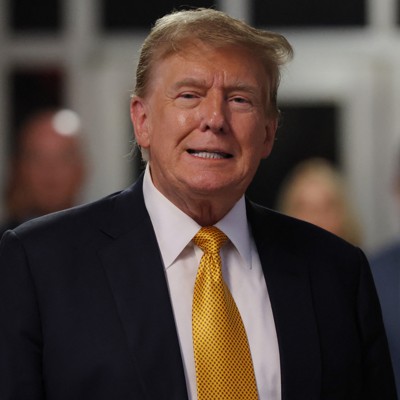A new group of government and civil service experts has formed to oppose conservative-led efforts to strip federal employees of due process protections and create a new centrist “consensus” for reforming federal personnel policy. ”.
The Working Group to Protect and Reform U.S. Civil Service was created by political scientist Francis Fukuyama, Don Kettle, professor emeritus and former dean of the School of Public Policy at the University of Maryland, and administrative law scholar Paul Burquill. .
Kettle said. government executives The trio said they came together because they realized there was a lack of voices outside of Congressional Democrats and federal employee groups warning against the Republicans' plan to reinstate Schedule F.
“We've been talking for quite some time, and we've become increasingly concerned not only about Schedule F, but also other proposals that the Trump administration plans to bring back more aggressively,” he said. “We were concerned that there wasn't much push back, other than that everyone thought it was a bad idea. . . . No voices of consensus as strong as those on the right were emerging. It is.”
In the waning days of the Trump administration, the former president signed an executive order creating a new category of “policy jobs,” an exceptional federal government job category. Agencies will be directed to create a list of jobs that fall into the new category, at which point workers filling those roles will be removed from competitive service and effectively become employees at will. When President Biden took office in January 2021, he immediately rescinded the order before any employment changes could take place.
But in the intervening years, Trump's allies had been hard at work preparing for an “immediate” reinstatement of the policy, drawing up a list of 50,000 federal employees eligible for Schedule F conversion. It has built a database of tens of thousands of political appointees. Under the plan's lax employment regulations, they could be hired immediately. Trump himself supports Schedule F, making it part of his presidential campaign platform.
The organization's statement already has 30 signatories, including 30 founders, and includes good government officials like Max Steer of the Partnership for Public Services, Anne O'Connell and Don This includes left-of-center academics like Moynihan, as well as conservatives like: Philip K. Howard and former Federal Payroll Council Chairman Ron Sanders, who resigned over President Trump's Schedule F executive order.
“The proposed reinstatement of Schedule F would not help the administration lawfully and effectively implement its policies or achieve the future goals listed above, but would instead dangerously undermine them. “We believe that this will be the case,” the organization said in a statement at the time of its founding. “Government officials will be less likely to take legitimate risks and innovate if they feel they are being judged based on political loyalty rather than results.”
But Kettle said the group decided that to be successful, it must not simply oppose Schedule F and other civil service reform plans that are gaining traction on the right. Instead, the self-described “furious moderates” said they would outline competing visions for the future of public services.
“One of the things we concluded before we started was that we didn't want to just do a watered-down 'salute to the flag,'” he said. “From the beginning, we wanted to get serious about this. So this is not just about fighting Schedule F, because it's much more important to talk about the government we need in the future. Although there is clearly a wide range of opinions within the group, it turns out there is a surprising consensus on two points: One, Schedule F is a bad way to run government. “We need to focus more on the question of improving government performance.”
Thus, the group's statement outlines five pillars for designing the federal bureaucracy of the future: accountability, or responsiveness rather than loyalty of federal employees to the policy decisions of political leaders; collaboration; consequences from “simple compliance” with regulations; and capability, or the idea that agencies must adequately staff their workforces and have the resources to successfully attract employees with mission-critical skills.
“When you read what Project 2025 is about, you see an interesting contrast between what we put together and Project 2025. [policy agenda], their foundation is individual idea agencies by agencies,” Kettle said. “One thing we know is that if you read between the lines of what we have argued; [in our statement]— that we are in a world where simply trying to address problems within government agencies is a path to failure. . . The process of making government work in the 21st century is much more complex than that. ”


